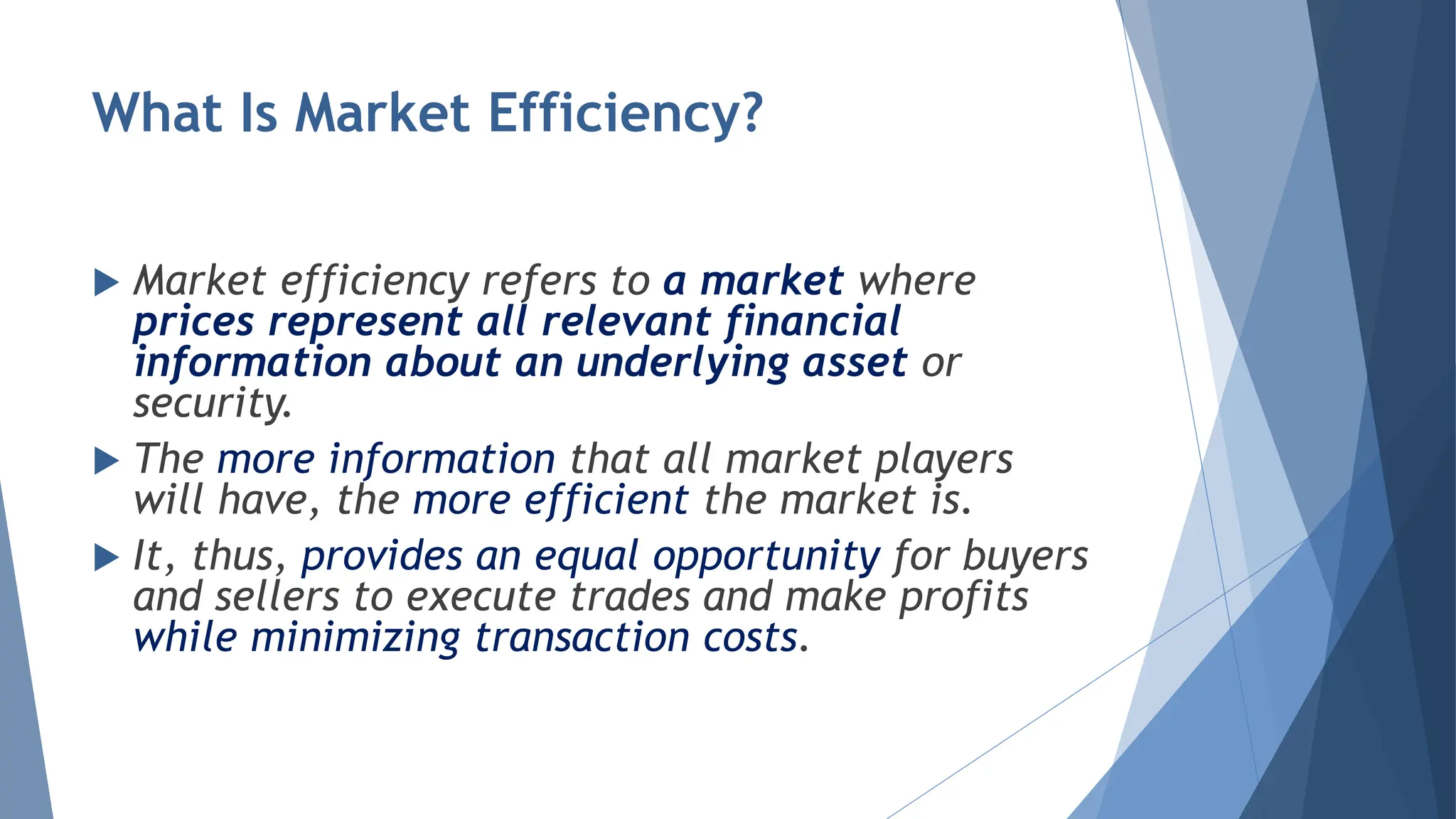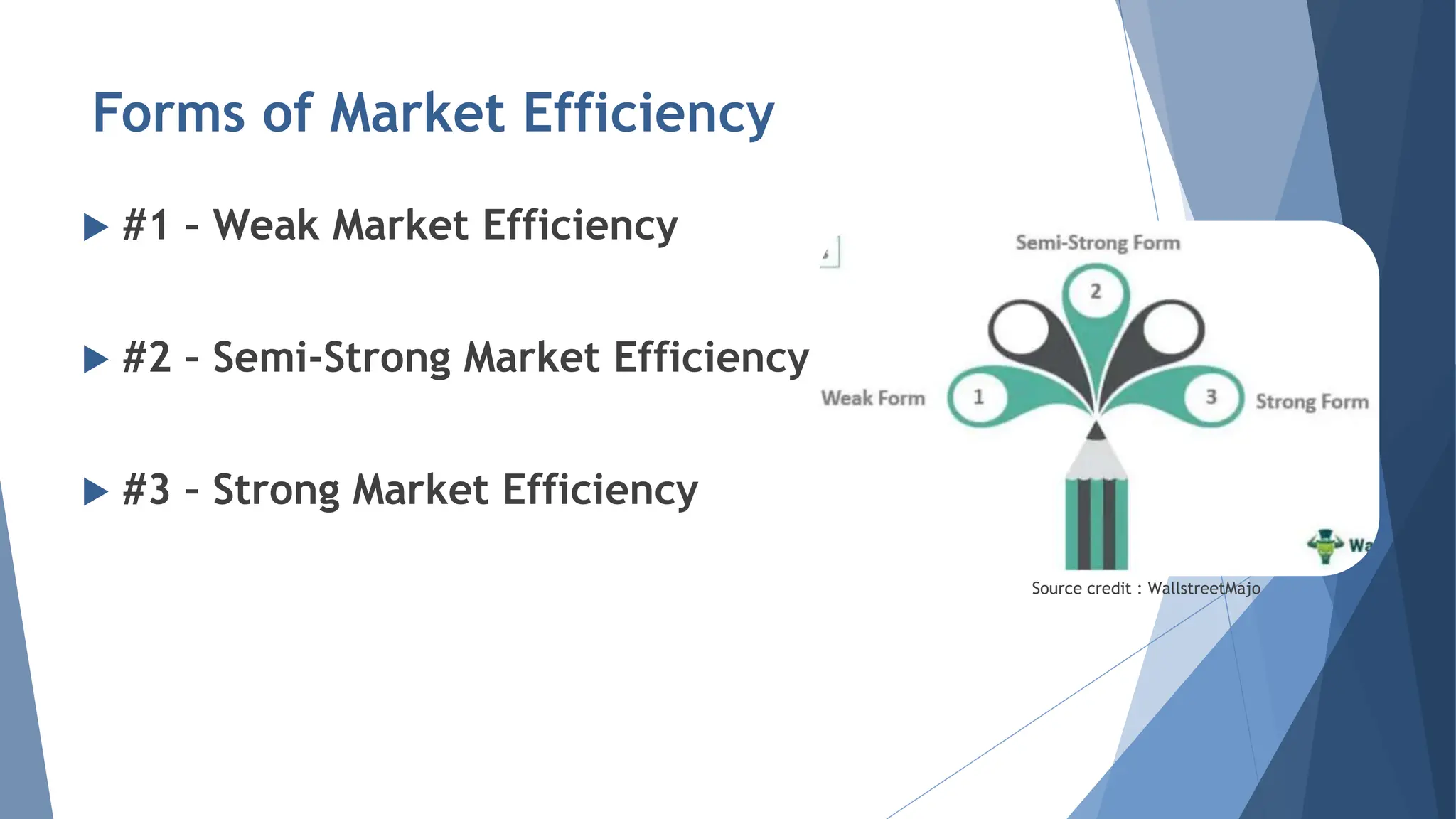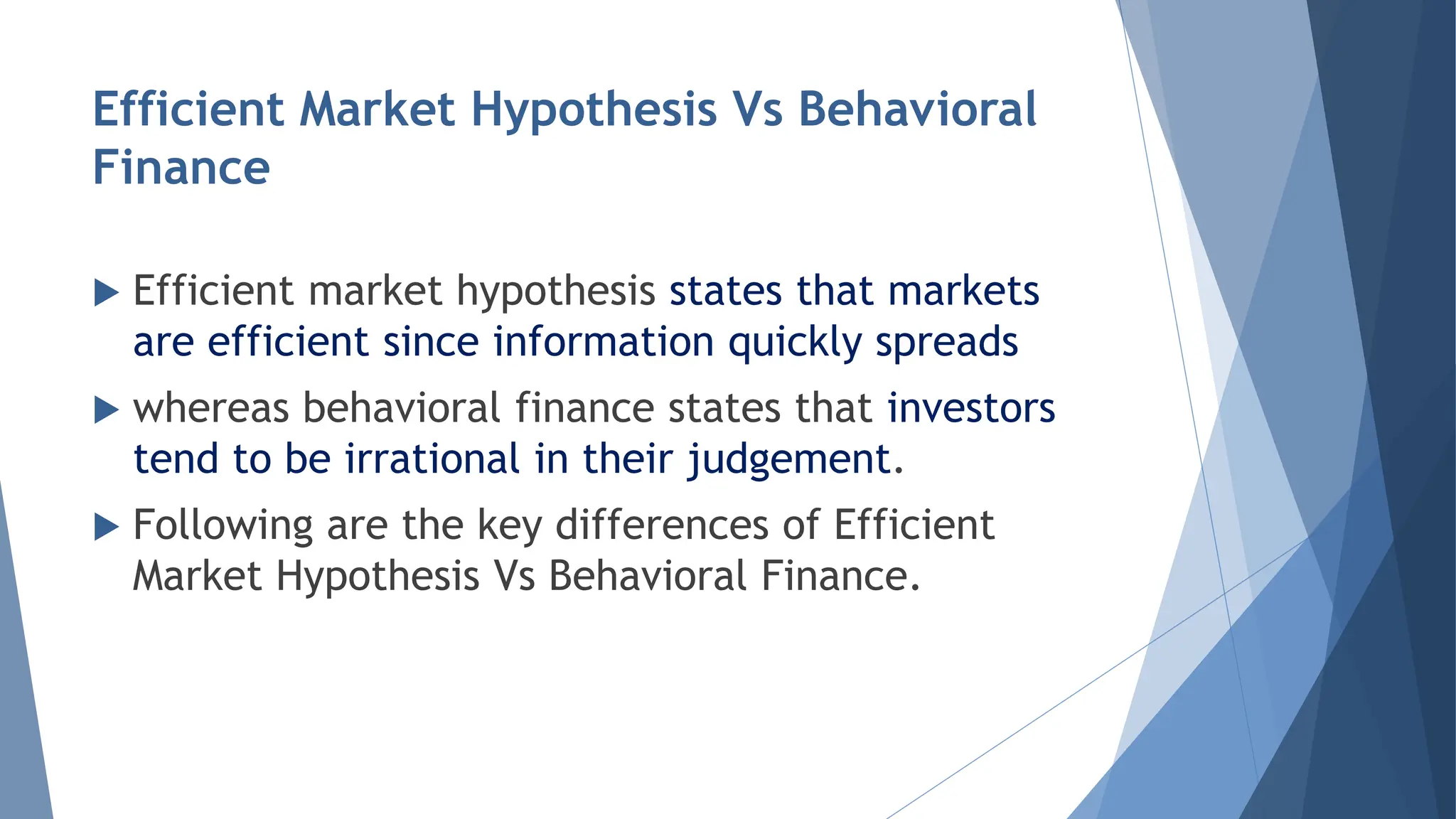The document discusses market efficiency and the efficient market hypothesis. It defines market efficiency as prices reflecting all relevant financial information, so there are equal opportunities for buyers and sellers. The efficient market hypothesis states that stock prices instantly change to reflect new public information, making it impossible for investors to consistently earn above-average returns. The hypothesis is criticized for not explaining market bubbles that have occurred. The document also explains the weak, semi-strong, and strong forms of market efficiency and provides examples to illustrate market efficiency.
























